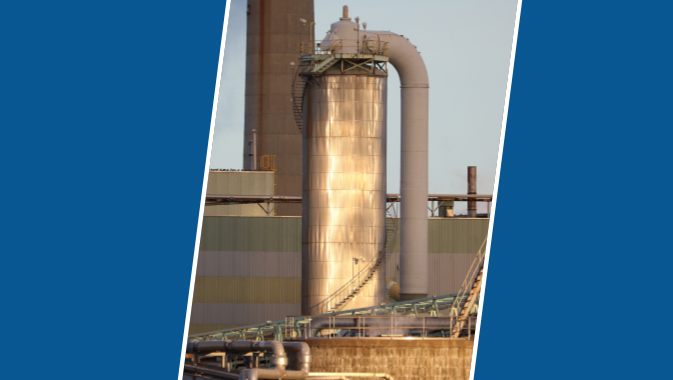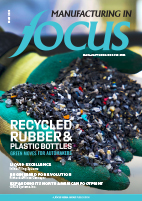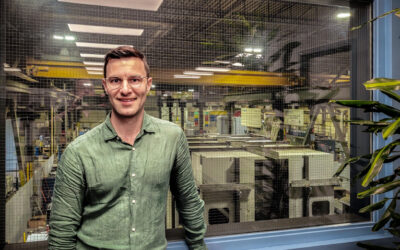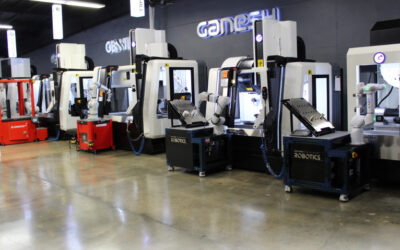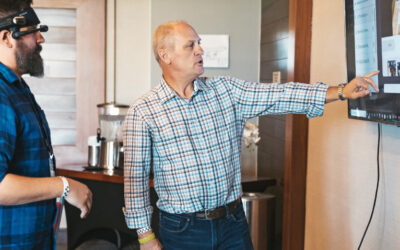Based in Augusta, Maine, Kenway Composites offers its customers complete technical confidence.
This company’s fiberglass-based composite materials go everywhere corrosion goes to protect civil, bridge, highway, and military infrastructure – and much more. Kenway Composites save money and time and prevents disruption with fresh possibilities and ongoing innovation.
Best known for its chemical storage tanks and fiberglass reinforced pipe (FRP), Kenway Composites’ core offering is heavy corrosion-application composites provided to its industrial partners. Its expert solutions primarily prevent and correct equipment erosion caused by either environmental or chemical damage in areas like civil, highway, and military infrastructure; fiberglass handrails, ladders, catwalks, walkways, and platform systems, and more.
Such damage typically results in increased maintenance demands, downtime, and elevated running costs if left unchecked. To deal with these hazards, the team of engineers is well-versed in custom-designing solutions that work. These include chemical transfer pipes, acid, and caustic sewer pipes, corrosion-resistant process pipe and much more. The team also performs services like field installations and repairs, custom manufacturing, and more.
Fresh possibilities
With an innovative team that’s passionate about its work, the company frequently comes up with fresh, new possibilities. In 2019, it introduced composite turbine wind-blade repair. This is the application of a special, hypoxy-based resin for those blades made of a fiberglass-reinforced composite rather than metal alloys.
The company supplies many more field services that are also unique to it. For example, to improve bridge reliability, divers equipped with special technology apply fiberglass wraps to submerged parts of the structure. It means that bridges do not have to be dewatered before being repaired.
Kenway Composites’ most popular field-service offering, however, is its chemical storage tank relining service. Corrosion barriers are applied on-site and with minor shut-down, saving owners the considerable cost of replacing large, older storage vessels.
As an industry leader in top-quality composite manufacturing, Kenway has been a member of the American Composites Manufacturers Association (ACMA) for many years.
It is also a certified member of the Fiberglass Reinforced Plastics Institute (FRPI). This quality assurance organization performs strict audits of manufacturing facilities as well as fabrication processes, ensuring the quality and the safety of the sites, mixtures, and resulting materials.
The company’s dedication to quality also extends to its customer service. Clients save time and money with a single point of contact with Kenway, which ensures speed and efficiency. “[Our customers] have one person – who is an engineer and project manager – who they reach out to for all their needs. [From] upfront engineering design, all the way through to final billing,” says Alex Thibodeau, President.
Taking the sub out of contracting
True to this commitment, nothing is subcontracted. From engineering to installation, Kenway Composites’ teams are responsible for project outcomes, every step of the way.
“We have complete control of the entire cycle. From initial customer contact, design, fabrication and then, delivery,” says Thibodeau. And the system works, as is evident in its impressive list of customers. Companies come all the way to Florida from as far west as the Mississippi River.
It takes a solid team to uphold the solid structure that this company’s product and services are based on. As with all things solid, good relationships are key. This is why the Kenway Composites team takes both pleasure and pride in getting to know their clients and clients’ needs so well. Its clients are considered to be family, making fast response times, regular visits and old-fashioned courtesy calls the norm.
Its staff is greatly supported in delivering the best service that they can. Nobody is left to flounder and help is always there when it is needed. It is thanks to this high level of support that, in all its time, the company has never deserted a single project. “Customers will call us up, and we’ll have people on a plane in three to four hours to go to their facility and take care of whatever it is they are having an issue with,” says Thibodeau.
From the start
The company was started by Kenneth Priest, Sr. in 1947. At first, the team built 13 to 15-foot wooden boats. Then, during the mid-60s, the paper and pulp industry suddenly experienced severe problems with the corrosive chemicals used in the bleaching of its paper fiber.
Kenneth Priest had already started exploring the possibilities of fiberglass composites as an alternative to metal in boat components. From here, the transition into manufacturing fiberglass composites for other industries happened organically.
With 70 years in the industry, Kenway Composites finally outgrew its family-business status. In March 2017 it became a subsidiary of Hill & Smith Holdings PLC.
With the merger, the company also became a part of Creative Pultrusions Group, a division of the holding company and another global leader in composites. The group now comprises Kenway Composites and three other related companies that together form an internationally recognized team in the composites field.
Composite Advantage, the second of the four divisions, is based in the Midwest, in Ohio. It specializes in the manufacturing and installation of composite bridges, road surfaces and marine infrastructure like piers and pilings.
The third, Tower Tech in Oklahoma City, Oklahoma, manufactures and installs commercial cooling towers. The last partner in this group, E.T. Techtonics, manufactures smaller pedestrian and trail bridges – also from fiberglass.
Finding the best
Thanks to an exponential growth in demand for its services, driven by the growth of the manufacturing industry, Kenway Composites is scouting for dedicated talent to join its teams.
“Securing people is our single biggest challenge, right now. In 2019, there is somewhere between three and five million dollars of work that we had to [turn down] because we could not resource the work in our shop to build it,” says Thibodeau.
To remedy the labor deficit, the company is leveraging the power of social media – and it’s working very well. Kenway Composites is also adapting the way in which it works. It has realized that, in contrast to the baby boomers who loved to work overtime and take home more money, the younger generations prefer not to.
“In this region, people do not want to work overtime. [They] would like to work 40 hours and not ever work a weekend,” Thibodeau says. Naturally, this occasioned a review of the company’s way of operating.
Now, in an effort to offer its people the ideal work-life balance, the company is looking at new ways of working more effectively, while still offering the best quality and service, challenging as it is. It seems Kenway is winning.
While composites are favored by a myriad of industries – like mining, chemical processing, pulp and paper, and even aerospace – Thibodeau notes a potential increase in their use in ports and highway infrastructure and other sectors not previously known for their interest in these materials.
A world of use
In his opinion, non-corrosive composites and their hybrids offer the perfect solution to issues of decaying infrastructure caused by rot and rust, and so on.
Composite materials are incredibly tough, and easily survive the onslaught of both nature and urban life. Whether submerged in salty seawater or covered in the de-icing sodium and calcium run-off from winter roads, composites remain strong and in situ – all without a drop of paint or sealant. “Looking forward, I think we’ll see greater use of composites and also hybrid fabrications,” Thibodeau adds.
Hybrid fabrications offer some of the greatest new possibilities for composites. Thibodeau points out a few of the great solutions created by the use of composites in tandem with materials like concrete.
It makes more financial sense to use the latter on road surfaces and to then fabricate the supporting infrastructure beneath and inside the concrete from composites to bring a significantly greater lifespan to the whole structure.
The biggest challenge now is getting this message through to industry professionals.
Expansion and education
Educating engineers on the merits of these materials is Thibodeau’s next big passion. Although the transition will take time – in a world where design professionals are better acquainted with the use of concrete throughout a structural design – it is far from impossible.
“The design formulas don’t change, but the values for the materials and some of the fabrication techniques are different,” he says.
The culmination of new possibilities of growth, capacity, and capability creates opportunity. And standing on the brink of a new era in composite manufacturing at the beginning of 2020 is exactly where Kenway Composites finds itself now. With Kenway Composites’ single clear goal of expanding further into its existing markets and becoming the recognized composites expert in every one of these, it seems highly likely that this will be its next big accomplishment.

